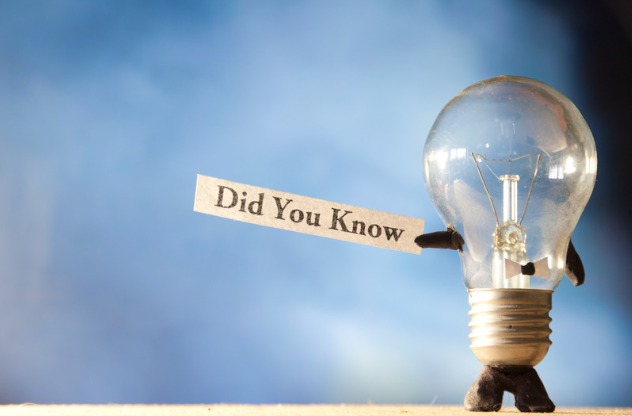Citizens Depopulation Break-Up: It’s Not You, It’s Them

Citizens Depopulation Break-Up: It’s Not You, It’s Them
Florida’s state-backed insurer, Citizens Property Insurance, was created as an insurer of last resort — never meant to be a permanent solution. But with nearly 1.2 million policies, it has now become the largest insurer in the state. That’s risky for everyone: if Citizens runs short after a storm, all Floridians could be assessed to cover losses.
To reduce that exposure, the state is aggressively "depopulating" Citizens — shifting policies into the private market.
What You Need to Know
- The 20% Rule – While the rules have changed frequently over the years and will probably change again at some point, currently, if a private insurer’s offer is within 20% of your Citizens renewal, you’re required to accept it. If multiple offers come in, you can choose which company assumes your policy.
- Coverage Protection – Current rules require the new carrier to keep your coverage the same for three years.
- No Do-Overs – Once moved, you generally can’t immediately return to Citizens. Make sure to stay on top of the renewal offer to make sure your policy should be assumed.
- Initial Notice vs. Renewal – The first depopulation notice isn’t your final premium; it’s just an estimate. Always check the actual renewal notice to confirm it’s within the 20% threshold. If it’s not, you may have the option to stay with Citizens. If you are able to remain with Citizens, there is a very short timeframe to do so, most likely without the need for new inspections.
Why You Should Do Your Homework
Not all private insurers are created equal. Before agreeing to a takeout offer, be sure to:
- Check Financials – How long has the company been around? Do they have solid reinsurance and a track record in Florida? Are they a “sister” company to an existing carrier or group of carriers?
- Look at Leadership – Who’s in the C-suite? Many new carriers are led by seasoned insurance executives, but it’s worth confirming.
- Be Smart with Reviews – Google reviews can be misleading. Shoppers who focus only on price often end up with stripped-down coverage — and costly surprises at claim time, often leading to negative feedback in public forums. Let’s be honest, has anyone ever jumped on a 5 star review of an insurance entity? Let us help you weigh the options.
Bottom Line
Depopulation isn’t just about shrinking Citizens’ books — it’s about protecting the state and its residents from financial catastrophe. But it’s on you to make sure the carrier taking over your policy is stable, experienced, and hurricane-ready.

Storm Season 2025: Be Prepared and Protected
Stay ahead of the storm – check back monthly for protection tips and insurance guidance throughout the 2025 storm season.
Shingle & Mingle? Check the Insurance First
When a hurricane hits, repairs can’t wait. But rushing into a contract with the wrong contractor can leave you with problems worse than the storm itself. If a contractor isn’t properly insured, you could be held financially responsible if a worker is injured or additional damage occurs during repairs.
Verifying insurance isn’t just a formality — it’s protection for your home and your wallet.
What to Look For
- Certificate of Insurance (COI): Always request it directly from the contractor’s insurance agent — not the contractor. This ensures the document is legitimate and current.
- Correct Class Code: Policies use "class codes" tied to the type of work insured. For example, a roofer insured under a handyman code isn’t actually covered for roofing. A handyman insured as a handyman has no coverage for licensed work. Always confirm the COI lists the correct class codes.
- Coverage Types: At minimum, your contractor should carry General Liability (for property damage and injury to others) and Workers’ Compensation (to protect employees if they’re injured on the job).
- State Coverage: Confirm the contractor is insured to work in your state. Policies aren’t always nationwide, and coverage may not apply outside the contractor’s home state.
Why It Matters
If your contractor isn’t insured for the actual work — or the location — any claim may be denied, leaving you directly exposed. After a hurricane (or anytime for that matter), when demand is high and “storm-chasers” flock in (often from out of state), it’s even more critical to slow down and check credentials.
Bottom Line: Don’t just hire the first person who shows up with a truck and toolbox. Take a few minutes to confirm insurance coverage, class codes, and state approvals. That small step can save you from major financial headaches.
Tip: A legitimate contractor won’t hesitate to have their agent send proof of coverage. If they push back, that’s your red flag to walk away. You can also check with your homeowners carrier — many keep an "approved" list of contractors who are licensed, insured, and don’t require an Assignment of Benefits.

In the Know: Because Someone Has to Explain This Stuff!
Last month’s greatest hits: frequently asked, always answered.
Q: I made changes…isn’t it automatic?
A: We wish! The truth is, your carrier only updates when we send them the right paperwork. For a new roof, that means a wind mitigation report. If you sell your home, they’ll need a signed cancellation request and a copy of the settlement statement. If you replace your vehicle, we don’t know unless you tell us!
Bottom line: We don’t know unless you tell us! A quick call or email can mean discounts, smoother transactions, and no surprises if you ever need to file a claim.
Q: As a property investor, is my liability limit "per property"?
A: Nope — your general liability limit applies to all properties on the policy combined**,** not each one individually. That’s why carriers usually cap how many properties can go on a single policy. It’s also smart to consider holding properties in an entity for added protection but always check with your attorney to make sure it’s the right move for your situation.
Q: When should I rate my auto policy for business use in Florida?
A: Anytime your vehicle is used for more than just personal errands or the typical drive from home to work and back. If you’re meeting clients, hauling tools or supplies, making deliveries, if your car is titled in a business name, or even if it has business signage on it — it should be rated for business use**.** Correctly rating your policy helps prevent denied claims and makes sure you’re actually covered while driving for work.
Bottom line: If you’re making money while driving, your car probably needs a business-use rating. When in doubt, let us review it for you.

Let's Clear That Up
Because your cousin's Thanksgiving insurance advice came with confidence, not credentials.
Myth: I am the only one who drives my car, so I am the only one who needs to be listed.
In Florida, every licensed driver in your household needs to be listed on your auto policy — even if they don’t drive your car often. Why? Because your insurance carrier rates the risk based on everyone with access to your vehicles**.** Simply saying “they never drive my car” or “they don’t have access to it” does not suffice. Personal Injury Protection (PIP) coverage follows the person, not the vehicle, and can extend to others in the house if they do not have their own. Minor children in a split household should be listed on both parent’s policies as PIP will pay out on a “pro rata” basis, not the parent they spend the most time with. Leaving someone off can lead to denied claims or unexpected out-of-pocket costs if that person gets behind the wheel. Listing all drivers keeps your coverage valid, your claims protected and avoids surprises down the road.
Myth: My house is up for sale or I am renovating, but it doesn’t matter to insurance.
Many people think leaving their house vacant because they are putting it up for sale or starting renovations, etc. won’t impact their homeowners insurance. Wrong. If your home is vacant for 30 days or more, your standard homeowners policy may no longer apply. Insurers view vacant homes as higher risk — break-ins, water damage, fire, and liability exposures all increase when no one is living there. A switch to a short term (or long term) vacant policy or builder’s risk usually takes care of the problem.
Myth: If my neighbor’s tree damages my property, their insurance pays.
Nope! If a tree on your neighbor’s property hangs over your yard and causes damage to your home, your own insurance is usually the one that responds — not your neighbor’s. The only exception is if you can prove your neighbor was negligent (for example, they ignored a dead or clearly dangerous tree after being notified). Short of sending a certified letter, signature required, it is very difficult to prove negligence in this instance.
Bottom line: In most cases, fallen tree = your policy. The smart move is to trim branches that cross your property line before they become a problem — prevention is always easier than a claim.

The High Five
Quick rundown of what’s true, what’s new & what’s worth knowing
- We are licensed in all states.
Moving? Have homes, cars, businesses, etc. in states other than Florida? We can help! A lot of times, we can even package those policies together for you. - True multiline discounts do not exist anymore.
Yes they do! We have carriers that will offer multiline discounts for having home, auto, umbrella, boats/recreational vehicles all in our office! Ask us to review your portfolio for potential savings! - Aflac is only for big companies.
Not true! Aflac supplemental benefits work for small businesses too — and they’re a great way to recruit and retain employees, often at little to no cost to the employer. - We write ALL types of insurance.
We’re not just a one-trick pony — we’re your one-stop shop! Whether it’s auto, home, business, marine, umbrella, equine, aviation, animal liability, or more — we’ve got you covered. - Had a workers’ comp claim? You’re not uninsurable.
One claim doesn’t mean you’re stuck paying higher premiums forever. As Certified Risk Managers, we can assess your policy and put strategies in place to help lower your premiums moving forward.

Oliver Off-Duty: The Doxie Diaries
A newsletter within a newsletter, about anything other than insurance, because Oliver refuses to be left out.
Halloween: Because Humans Will Find Any Excuse to Dress Up and Eat
Where It Started
Halloween’s roots go back over 2,000 years to the Celtic festival of Samhain (pronounced Sow-in). Think of it as a giant "end of summer" party where people believed the line between the living and the dead blurred. To keep ghosts from ruining the party, they lit bonfires and wore disguises. (Basically: ancient ghost management.)
To keep the ghosts from messing with their crops, folks lit bonfires and wore costumes. (Translation: snacks by firelight and the OG dress-up party.)
Enter the Romans & the Church
A few centuries later, the Romans — and then the Christian church — layered on their own holidays like All Saints’ Day and All Hallows’ Eve. That’s where "Halloween" comes from. More costumes, more rituals…humans really love an excuse to dress up.
Crossing the Pond
In the 1800s, Irish and Scottish immigrants brought Halloween traditions to America. Pumpkins replaced turnips (thank goodness — try carving a turnip and get back to me), and "trick-or-treating" took off. Kids figured out they could knock on doors, demand snacks, and call it tradition. Genius.
Halloween Today
Fast-forward to now: haunted houses, scary movies, and neighborhoods competing over who has the best lawn skeleton army. What started as a harvest festival is now one of the biggest holidays in America — powered by sugar, costumes, and just enough spook to keep things interesting.
Oliver’s Bottom Line: Halloween has always boiled down to two things — scaring off bad vibes and collecting treats. Thousands of years later, not much has changed. Now… hand me the snacks.
From Gourd to Glory
- Cut the bottom, not the top. It’s sturdier, hides cords for LED lights, and keeps the stem intact (slows wilting). If you do cut a lid, angle the knife inward 45° so it won’t fall in, and poke a small "chimney" hole near the stem.
- Thin the walls where you’ll carve. After scooping, scrape the design area to ~⅜" thick—details cut cleaner and you won’t fight the knife.
- Transfer designs like a pro. Tape on a printed pattern and "poke-trace" with a pin. Connect the dots with a dry-erase marker (wipes right off).
- Tools beat kitchen knives. A cheap keyhole/mini coping saw, linoleum cutter, or clay loop tool makes curves and shaving/etching easy. Serrated pumpkin saws > chef’s knife.
- Etch for glow, don’t always cut through. Shave off just the skin for subtle, lantern-style glow and extra structural strength.
- Cookie cutters + rubber mallet. Great for stars/bats/moons—fast and uniform.
- Keep it fresh in Florida. After carving, mist the inside and cut edges with a mild bleach solution (about 1 Tbsp per quart of water) to slow mold, then dab edges with a thin layer of petroleum jelly or mineral oil. Store out of sun; pop it in the fridge overnight wrapped in plastic if it’s looking tired
- Light it smart. Use LED tea lights or fairy lights (safer, brighter, no heat). Toss a pinch of cinnamon inside for that "pumpkin-spice porch" vibe.
- Seed bonus. Rinse, pat dry, toss with oil + salt, roast at 300°F ~25–35 min, stirring once. Instant snack victory.
Have a topic or question? Email us at csr@melissaems.com and we will address it in upcoming newsletters!


